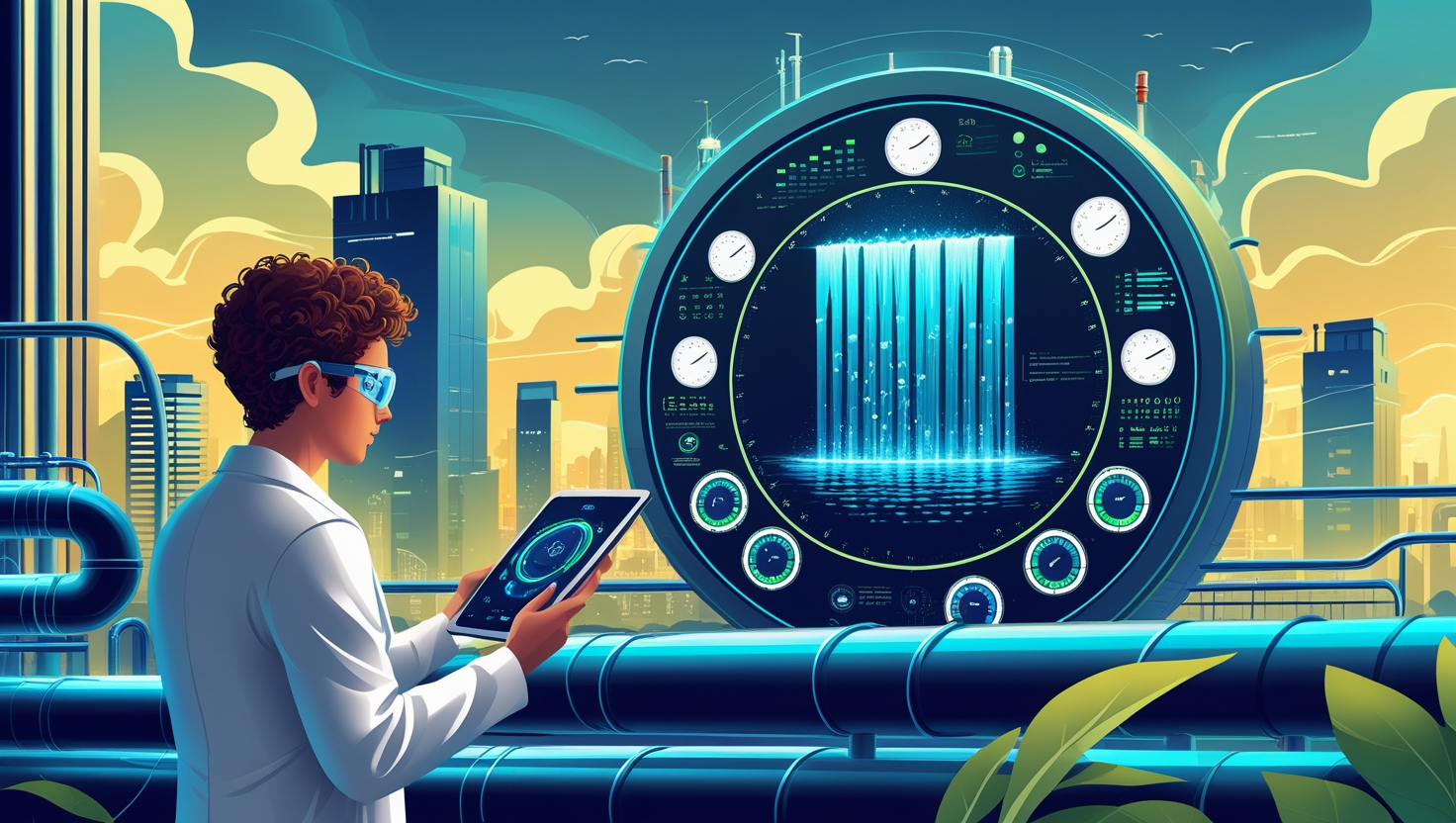
In today’s industrial world, wastewater treatment plays a critical role in environmental sustainability. As industries expand, so does the need for efficient, real-time data collection and monitoring systems. Traditional wastewater treatment methods often rely on manual sampling, periodic testing, and reactive measures. However, modern technology has revolutionized the process, making real-time data essential for effective wastewater treatment.
Why Real-Time Data Matters in Wastewater Treatment
Real-time data collection enables industries to monitor and adjust treatment processes instantly. Unlike conventional methods, which may take hours or days to analyze water samples, real-time monitoring provides immediate insights into water quality. This helps in identifying contamination, optimizing treatment efficiency, and ensuring compliance with environmental regulations.
Industries that generate large amounts of wastewater, such as manufacturing, mining, and food processing, benefit significantly from real-time monitoring. Industrial wastewater monitoring helps track pollutant levels, detect leaks, and prevent potential hazards before they escalate. With accurate and up-to-date data, industries can make informed decisions that improve overall wastewater management.
The Role of IoT and Smart Sensors
The integration of IoT (Internet of Things) and smart sensors has transformed wastewater treatment facilities. These advanced systems continuously collect data on pH levels, chemical composition, turbidity, and temperature. Automated alerts notify operators when parameters exceed acceptable levels, allowing immediate action to be taken.
For example, a sudden increase in pH levels may indicate the presence of harmful chemicals. Without real-time monitoring, such issues might go unnoticed until significant damage occurs. IoT-driven wastewater treatment systems eliminate delays, ensuring that corrective measures are implemented swiftly.
Enhancing Compliance and Reducing Fines
Strict environmental regulations govern wastewater treatment. Companies that fail to meet these regulations may face heavy fines and reputational damage. Real-time data helps businesses maintain compliance by providing accurate records of water quality at all times.
Regulatory bodies require industries to submit regular reports on wastewater discharge. With automated data collection, industries can generate reports effortlessly, reducing administrative burden and minimizing human error. This proactive approach not only ensures compliance but also demonstrates a commitment to environmental responsibility.
Improving Efficiency and Reducing Costs
Real-time data enhances operational efficiency in wastewater treatment plants. Traditional monitoring methods involve manual sampling and laboratory testing, which can be time-consuming and costly. Automated systems reduce labor costs and improve the accuracy of data collection.
Moreover, real-time monitoring helps optimize chemical dosing in treatment plants. Instead of using estimated quantities of treatment chemicals, industries can adjust dosages based on real-time water quality data. This reduces chemical waste and lowers operational expenses.
Preventing System Failures and Downtime
Unexpected failures in wastewater treatment systems can lead to serious environmental and financial consequences. Real-time monitoring helps detect equipment malfunctions before they cause major disruptions. Sensors can identify pump failures, leaks, or blockages, enabling maintenance teams to address issues promptly.
Predictive analytics, powered by real-time data, further enhances system reliability. By analyzing trends, industries can anticipate potential failures and schedule preventive maintenance accordingly. This minimizes downtime and prevents costly emergency repairs.
The Future of Real-Time Wastewater Monitoring
As technology continues to evolve, real-time wastewater monitoring is expected to become even more advanced. AI-driven analytics, cloud-based monitoring, and remote control systems will further enhance wastewater management. Industries will be able to make data-driven decisions with greater accuracy, improving sustainability and efficiency.
The shift towards smart wastewater treatment is a step toward a cleaner and more sustainable future. By investing in real-time monitoring solutions, industries can reduce pollution, comply with regulations, and optimize their operations.